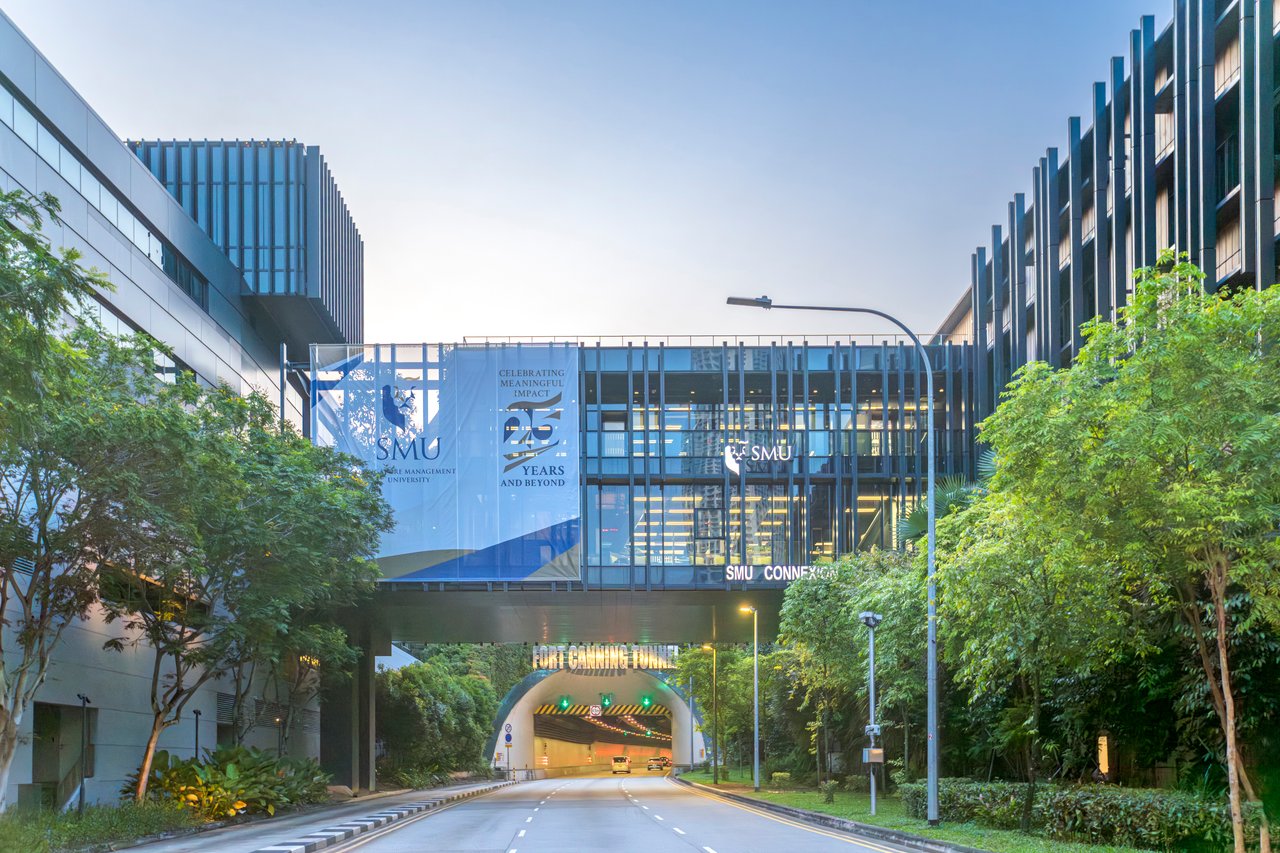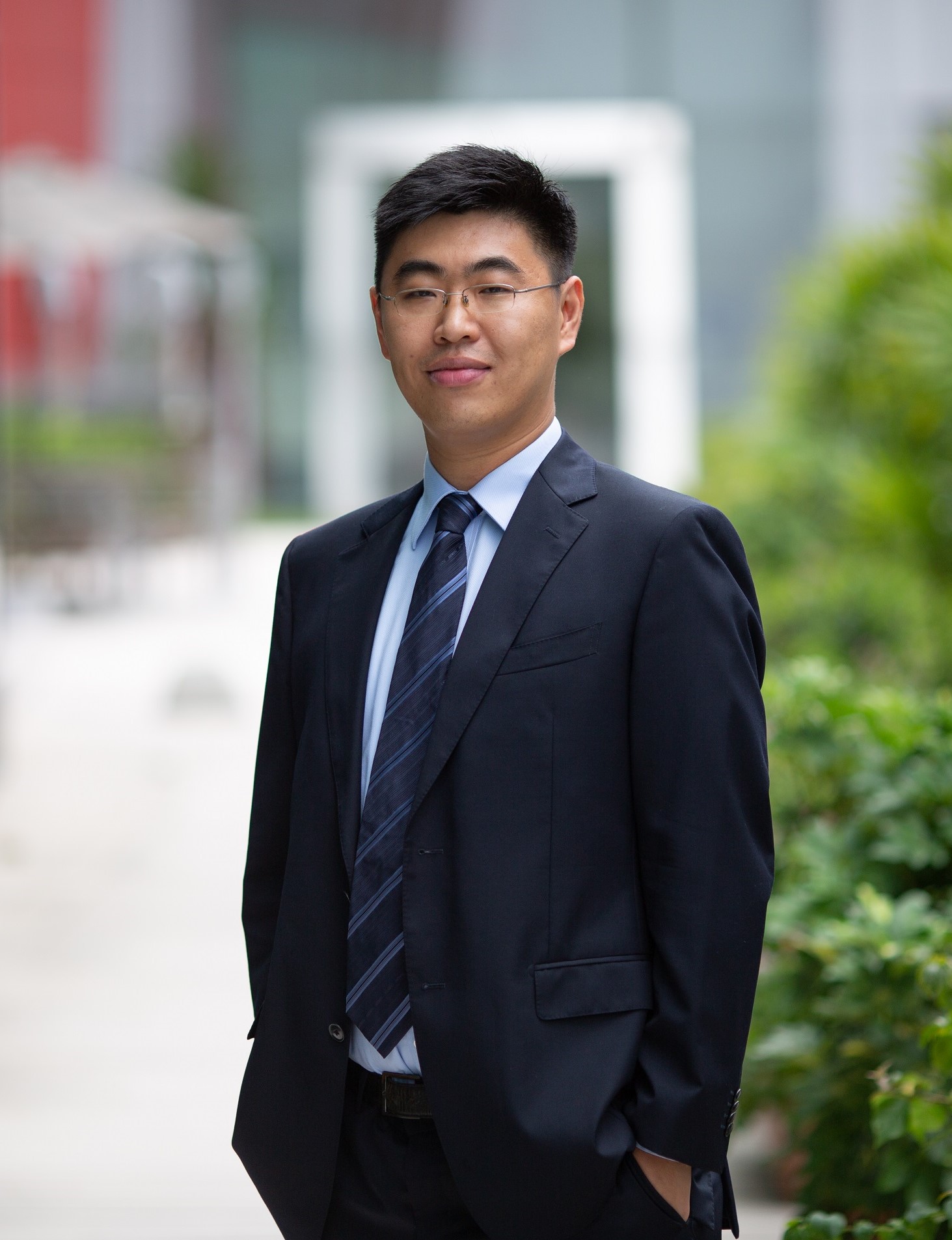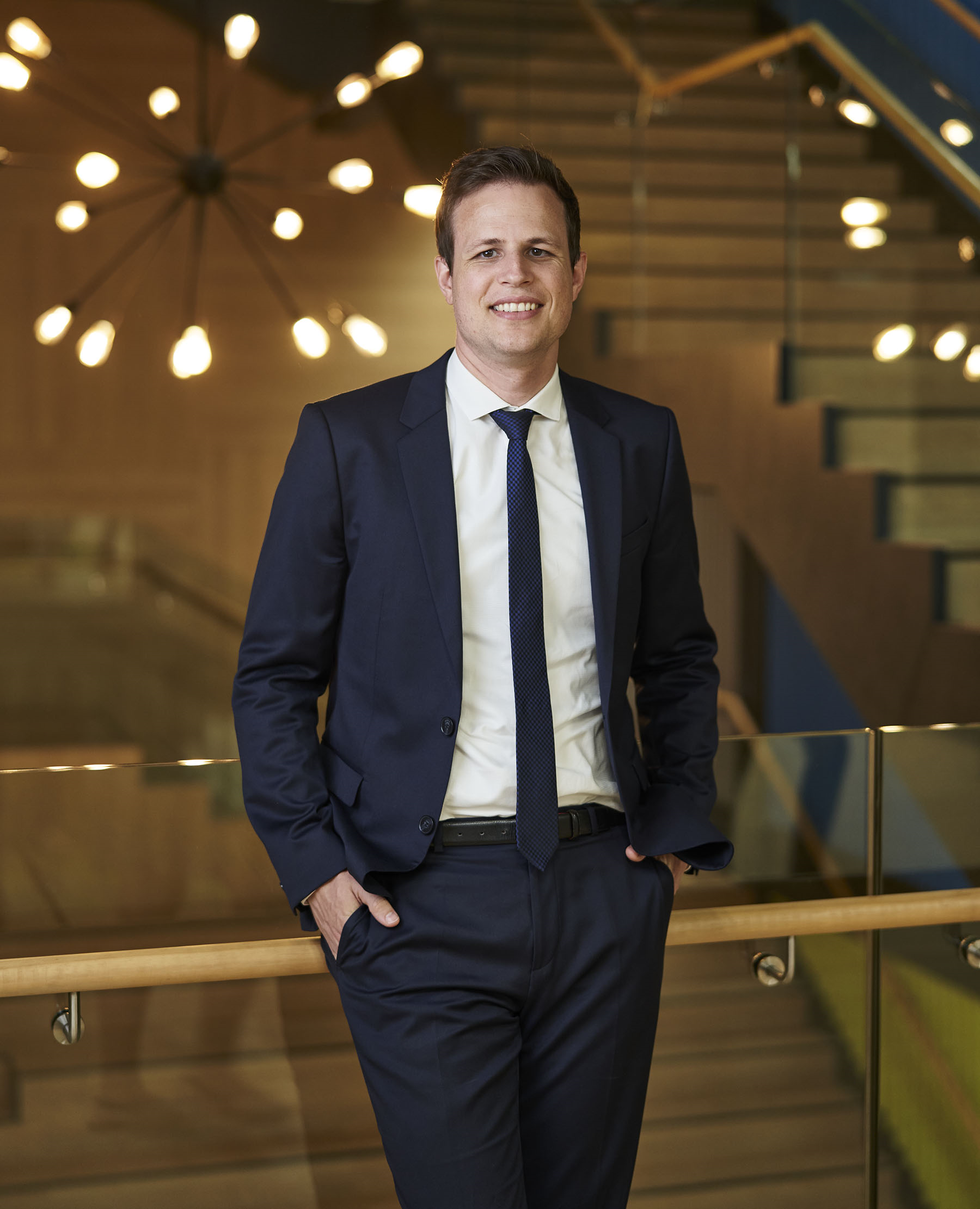
LKCSB’s Sustainable Business Research Peak is making strides in seeking to shape policies that will drive more environment-friendly practices and advance businesses for greater societal good.
One of the most pressing issues of our time is climate change, a complex and multifaceted problem that needs to be tackled from manifold angles by many different groups. The Lee Kong Chian School of Business (LKCSB) is doing its part through its Sustainable Business Research Peak.
Associate Professor of Organisational Behaviour & Human Resources Michael Schaerer describes the aim of the Research Peak as addressing “one of the most pressing challenges of our time — how businesses can pursue profitability while contributing to environmental and social well-being.” This research focus also aligns with national priorities around sustainable development, green finance, and the transition to a low-carbon economy, he notes.
In addition, by offering policy-relevant insights and supporting corporate transformation, it also contributes to Singapore’s position as a regional hub for sustainable finance and innovation, adds Ho Bee Professor in Sustainability Management Hao Liang.


Ho Bee Professor in Sustainability Management Liang and Associate Professor Schaerer are the co-leads of LKCSB’s Sustainable Business Research Peak. A research peak is a strategic area of focus that brings together faculty working on related themes to create critical mass, deepen collaboration, and lead funding acquisition efforts. At LKCSB, research peaks are a way to signal where the school aims to shape thinking, attract talent, and influence practice and policy, explains Associate Professor Schaerer.
Kickstarted during the 2023/24 academic year, the aim of the Sustainable Business Research Peak is to better co-ordinate the efforts of different faculty members to help businesses tackle real-world issues relating to environmental, social, and governance (ESG) matters.
It features academic papers, practitioner insights, case studies, and public seminars—offering a holistic view of how sustainability is reshaping business and society.
The Sustainable Business Research Peak spans three dimensions: economic, environmental, and social sustainability.
On the economic front, issues being studied include those pertaining to green finance; ESG investing; and the role of disclosure in capital markets. In the environmental domain, the research centres on green supply chains, carbon accountability and innovative paths towards climate resilience. On social sustainability, the research focuses on social equity, well-being, ethical leadership, and how to nudge individuals and organisations into making pro-social and pro-environmental decisions.
Interesting research
The faculty that are part of the Research Peak have been busy working on interesting research in the sustainability space.
Associate Professor Schaerer has published a working paper reappraising powerlessness as an opportunity in organisations. This paper flips the common view of powerlessness as an obstacle and instead shows that reframing it as an opportunity can unlock proactive behavior at work. It is timely in the context of flattened hierarchies, remote work, and employee empowerment — encouraging a growth mindset even in constrained situations.
The paper has useful practical implications in modern workplaces where traditional power structures are changing, and employees are expected to be more independent and proactive. It is especially relevant for leaders, HR professionals, and anyone trying to drive change from a low-power position.
Other faculty members are making headway on the behavioural and social aspects of sustainability. Research by Assistant Professor of Marketing Chris Du Plessis has shown how premium services for consumers such as fast-track queues and exclusive lounges can backfire if consumers view them as zero-sum transactional relationships. The findings offer practical strategies for designing services that are viewed as fair and more socially inclusive.
Meanwhile, Assistant Professor of Marketing Shilpa Madan’s research shows that public support for environmental action rises when people are reminded of their personal freedom to choose, an insight with clear implications for sustainability campaigns and public policy nudges.
Funded projects
The research peak has a number of research projects being funded by institutions such as the ASEAN Business Research Initiative, Singapore’s Ministry of Education and the Ford Foundation. These include grants for impact measurement in Asia, carbon pricing and green finance, ESG, and on the creation of a climate transformation hub.
Ho Bee Professor in Sustainability Management Liang himself is working on two funded projects, on transition finance and on impact measurement.
Transition finances looks into how to fund a fair and pragmatic shift toward net zero carbon emissions. Together with Assistant Professor Tianhao Yao, Ho Bee Professor in Sustainability Management Liang is looking at a financial strategy designed to help high-emission industries reduce their carbon footprint and shift toward more sustainable practices, particularly in Asia where energy transitions are complex due to high fossil fuel dependence and limited renewable alternatives.
It looks at how “brown” industries in Asia — those heavily reliant on fossil fuels such as steel or shipping — can decarbonise gradually with the right financial incentives. The project aims to provide a roadmap for investors, regulators, and companies navigating the energy transition.
The impact measurement project is about applying a particular methodology, known as Impact-Weighted Accounts Framework, which was co-developed by Ho Bee Professor in Sustainability Management Liang and colleagues at Harvard Business School, the Rotterdam School of Management, and Impact Institute, to measure the societal impacts of business operations, investment, as well as research of institutes for higher education.
On his part, Associate Professor Schaerer and Assistant Professor of Marketing Chris Du Plessis are working on a project to understand and close gender gaps in workplace outcomes.
Building a Collaborative Ecosystem
Ho Bee Professor in Sustainability Management Liang and Associate Professor Schaerer are now looking at expanding the efforts of the research peak by fostering interdisciplinary collaborations, applying for joint grants, and creating forums that attract external partners.
“We’re working closely with other SMU schools like Law, Accountancy, and Social Sciences to co-organise seminars that link sustainability with legal, policy, and ethical dimensions,” says Ho Bee Professor in Sustainability Management Liang.
In addition, it is hosting international experts for public lectures to enrich local dialogue and extend the school's impact to broader communities—including alumni, industry and government.
Associate Professor Schaerer adds that they are also developing a more formal identity—through events, branded research outputs, and working groups—that helps position LKCSB as a regional hub for sustainability research.
On his hopes for the future of the research peak, Ho Bee Professor in Sustainability Management Liang says he aims to deepen LKCSB's impact through greater industry collaboration, policy engagement, and academic excellence.
"Our vision is to shape regulations in sustainable business, finance, and public policies; influence ESG practices across Asia; and serve as a global knowledge hub connecting academia, industry, and government — anchoring SMU’s role in driving responsible business innovation.”
Associate Professor Schaerer adds that in five years, he hopes to see the sustainable business research peak recognised as a regional thought leader in the field. “That means producing influential research, securing major grants, and shaping business and policy conversations across Asia and beyond.”